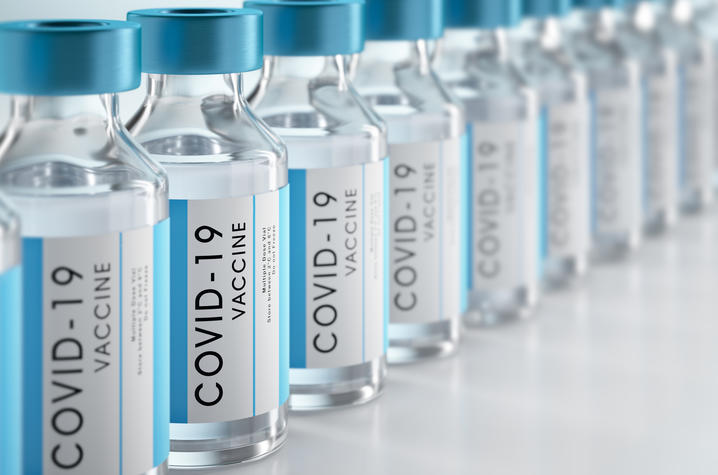What You Should Know About the Delta Variant

The University of Kentucky Public Relations and Strategic Communications Office provides a weekly health column available for use and reprint by news media. This week's column is by Becky Dutch, Ph.D., a virologist and the vice dean for research with the UK College of Medicine; Vince Venditto, Ph.D., an assistant professor of pharmaceutical sciences in the UK College of Pharmacy; Dr. Ashley Montgomery-Yates, UK HealthCare chief medical officer for inpatient and emergency services; and Dr. Aaron Grubbs, an infectious disease physician and UK HealthCare assistant medical director of infection prevention and control.
LEXINGTON, Ky. (Aug. 2, 2021) — As the SARS-CoV-2 delta variant continues to spread across the United States and hospitals’ COVID-positive intake numbers climb again, many questions remain around both vaccine effectiveness and vaccination rates, and what these numbers could mean moving into the fall.
When viruses replicate, they make billions and billions of copies of themselves. Every time they make a copy, they can make mistakes. Over time, you will expect that normal viral evolution means you are going to start picking up variants. The delta variant is the first notable variant we’ve seen from COVID-19. It is beginning to spread rapidly in the United States because of the large population of unvaccinated people here.
While this is a scary notion, there is good news that comes from this information. We now have on good authority that the COVID-19 vaccine is doing what it was made to do. Most people who have been hospitalized recently for COVID-19 are not vaccinated. This is evidence that the vaccines are working. They are inducing the appropriate immune response to keep us protected, keep us out of the hospital and prevent death.
Some are expecting to see a surge in hospitalization rates coming in the fall. The issue is not that the delta variant is a more aggressive virus, it is just more transmissible, which makes it easier to catch. Last year, even the people who were not necessarily full believers in what the Centers for Disease Control and Prevention (CDC) was saying, had things in place that kept them safe in ways they did not even realize. Without the mandates we were previously under — masking, no mass gatherings and businesses shut down — health care workers fear that the variant will cause surges.
The discussion is once again going back to precautions we can take to keep each other safe. Vaccinated people have had a taste of no mask life, but is that really what we should be doing?
There is evidence that suggests a vaccinated person can get the delta variant. However, those who have gotten it have had a mild infection. Even if you are vaccinated, if you are attending mass gatherings, or have someone in your immediate circle who is immunocompromised, the best solution is to wear a mask. If we’ve learned anything from COVID-19, it is much better to err on the side of precaution when dealing with your health. And if you haven’t yet, get your COVID-19 vaccine!
As the state’s flagship, land-grant institution, the University of Kentucky exists to advance the Commonwealth. We do that by preparing the next generation of leaders — placing students at the heart of everything we do — and transforming the lives of Kentuckians through education, research and creative work, service and health care. We pride ourselves on being a catalyst for breakthroughs and a force for healing, a place where ingenuity unfolds. It's all made possible by our people — visionaries, disruptors and pioneers — who make up 200 academic programs, a $476.5 million research and development enterprise and a world-class medical center, all on one campus.




